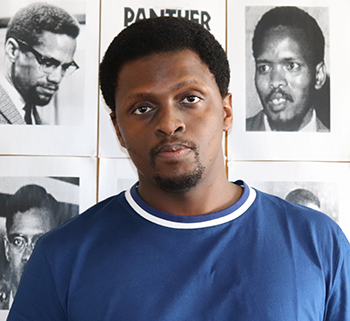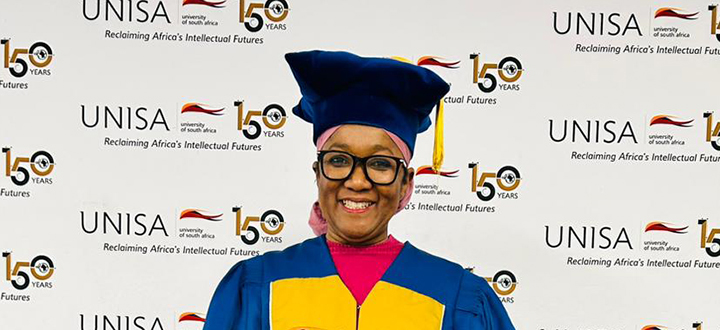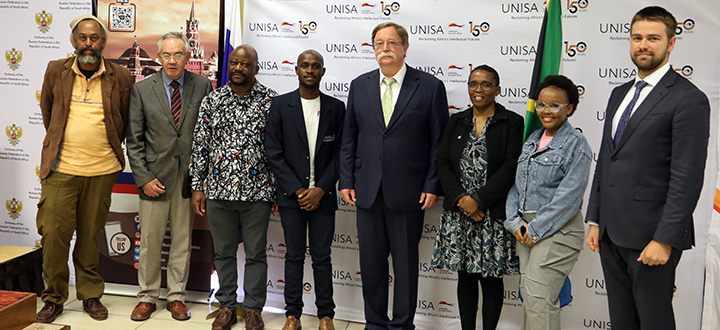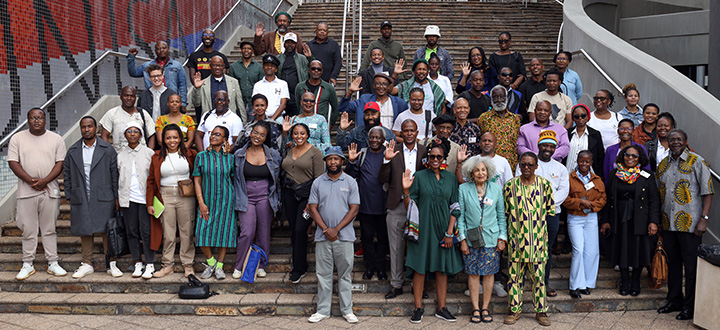News & Media
A powerful focus on justice and healing
 “Black theology is a quest to map out a different reality for black people and how they respond to God as a God of justice, liberation, and truth.”
“Black theology is a quest to map out a different reality for black people and how they respond to God as a God of justice, liberation, and truth.”
This view of justice, liberation and truth makes black liberation theology as relevant today as it was in colonial times, according to Dr Hlulani Mdingi, senior lecturer and researcher in Ecclesiology and Eschatology in the Department of Philosophy, Practical, and Systematic Theology.
Mdingi’s interest in black theology as a research focus derives from the historical dehumanisation of black people through dispossession and subjection to foreign rule and culture by white people. This “has a lot to do with how we understand the idea of God and Christ in the context that we find ourselves in as black people,” he says.
Black liberation theology is a response to colonialism and the kind of white theology that has been prevalent in South Africa and the rest of the world. That particular interpretation of the Bible stems from missionaries and the West for the pursuit of particular goals.
These are the advancement of white civilisation through accumulation of wealth and depopulation of African countries to build the West, and “gaining sole monopoly on power which is inextricable economics,” Mdingi says.
The notion of black theology is incorporated in the two modules he teaches. In Ecclesiology, Mdingi explores the historical background of Christian churches and missions in light of the modern-day context. In Eschatology, which is the study of the end times, he compares contemporary ideas about the destiny of humanity, including aspects such as philosophy and science.
From his research findings, Mdingi critiques western Ecclesiology, attributing the suffering imposed on black people through white supremacy to misrepresentation of biblical texts and ideas of God imposed by Europeans—and not as the acts of an unjust God.
Mdingi has written an article on theodicy, the idea of asking questions about whether a benevolent deity exists given the level of human suffering in the world. He uses the context of the suffering and death of Christ as an expression of a “good” God dying on the cross. This represents a kind of Christology that validates black people’s experience of suffering, he says.
As a black theologian, Mdingi sees a need for the young generation to ask more fundamental questions about how theology responds as an academic discipline and to be aware that black theology comes from the black experience and the black church.
Another aspect of Mdingi’s work relates to Jesus as a healer, with emphasis on healing in the black context—one that is beyond biological sicknesses. This existential approach is an effort to explore how black people consider the idea of Jesus’s healing as ushering justice and truth, in relation to the ill-begotten wealth of whites and the black condition. Furthermore, he seeks to ensure that the gospel and sacrifice of Christ on the cross has a serious meaning socially, politically, and economically for Christians and the world alike.
*By Mpho Moloele
Publish date: 2018-12-11 00:00:00.0

 Unisa community engagement initiative targets school underperformance
Unisa community engagement initiative targets school underperformance
 Library tour introduces learners to the wonderful world of Unisa
Library tour introduces learners to the wonderful world of Unisa
 Unisa Radio volunteer wins prestigious community journalism award
Unisa Radio volunteer wins prestigious community journalism award
 Unisa's student leadership engage with Russian ambassador
Unisa's student leadership engage with Russian ambassador
 Re-igniting and re-imagining Pan Africanism, Afrocentricity and Afrofuturism in the 21st century
Re-igniting and re-imagining Pan Africanism, Afrocentricity and Afrofuturism in the 21st century